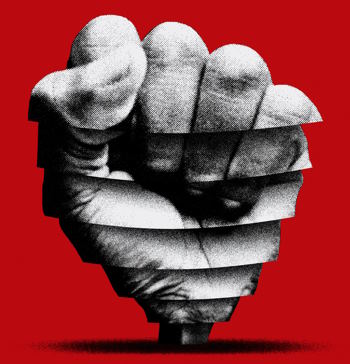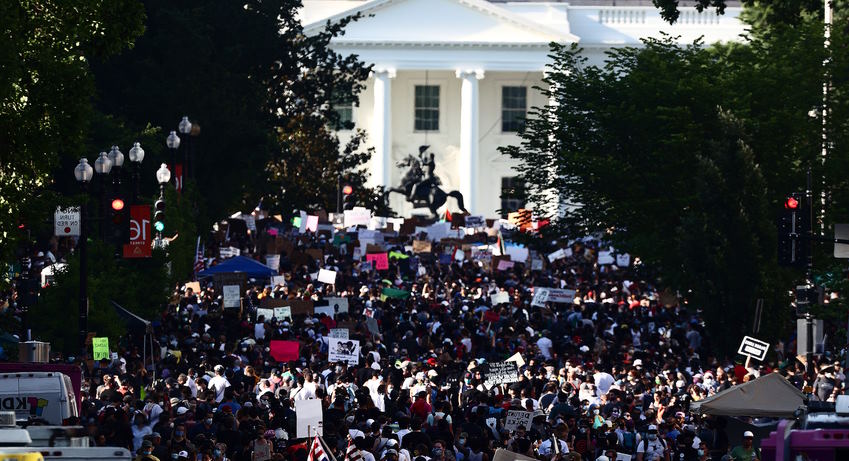
Make Your Voice Heard through Political Protest
Political protest can be a powerful way to bring awareness and ignite change. Whether it is an individual or an organization leading the charge, protests give individuals a platform to stand up for what they believe in—to make their voices heard loud and clear. But, unfortunately, those that voice opposition far too often are met with suppression from powers that be. Yet despite this adversity, some protest tactics continue to dominate movements against inequality, prejudice, ignorance, and more today making history as messages of freedom march on around the world. In this blog post, we’ll discuss why political protest matters now just as much as ever before and help identify ways you can join in while still safely staying within your means when participating in public demonstrations.
How to make the most of political protests
- Research: Before attending a protest, research the issues being protested and the groups involved. This will help you decide if this event is worth attending and how best to prepare.
- Connect: Reach out in advance of the protest to other people who are likely to attend—either through social media or by emailing or calling local organizers. This will allow you to develop relationships with other activists, making your protest experience more enjoyable and effective.
 Dress Appropriately: Wear comfortable clothes that are conducive for walking long distances, carrying signs, and chanting slogans. Also, consider bringing a reusable water bottle and sunscreen for outdoor protests in hot climates.
Dress Appropriately: Wear comfortable clothes that are conducive for walking long distances, carrying signs, and chanting slogans. Also, consider bringing a reusable water bottle and sunscreen for outdoor protests in hot climates.- Plan Ahead: Depending on the size and type of protest, you may need to bring additional items such as food, snacks and/or medical supplies. Make sure you have everything you will need before leaving for the protest to ensure a smooth experience and avoid being unprepared if it lasts longer than expected.
- Observe & Listen: Participating in protests can often be overwhelming, so take time to observe your surroundings and listen to what others are saying. This will help you understand the various perspectives present at the event, which can give you a deeper insight into issues affecting your community.
- Participate Actively: Whether this means carrying signs or chanting slogans, actively participating in a protest is vital to amplify the people’s collective voice. This can help to create a more powerful message and influence decision-makers in your community.
- Respect: Remember that not everyone will share the same opinion or have the same experience at a protest, so it is important to remain respectful even when disagreements are present. This includes respecting other protesters’ right to peacefully express their opinions and those of local law enforcement officials who are keeping everyone safe.
- Follow Up: Finally, when you return home from the protest, use social media outlets such as Twitter and Facebook to spread awareness about what happened during the event and keep its message alive in conversations with family and friends. Doing this will help ensure that your efforts were not in vain and that the protest’s message is heard.
By following these steps, you can ensure that your participation in political protests is meaningful and effective. Doing so will help to amplify the collective voice of disadvantaged and marginalized communities while also helping to bring attention to important issues in society. Ultimately, this could lead to real change for those who need it most.

Uniters, not dividers: how protests can bring people together
The power of protests to unite people behind a cause has been demonstrated many times in history. From the Stonewall Riots of 1969, which sparked the modern LGBT rights movement, to the millions who took part in the Women’s March in 2017, when citizens come together and make their voices heard, it can be an incredibly powerful force for social change.
When done correctly, protests can bring people from all backgrounds together to work towards a common goal. This unity is especially important today, when so much emphasis is placed on division—from politics and religion to race and gender—it’s easy for us to forget that we are all more alike than different. Protests remind us of our shared humanity and give voice to those who feel unheard.
It’s not just coming together to march in the streets, though that is certainly important. Protests can also be powerful tools for education and dialogue, allowing individuals from all walks of life to come together and discuss their concerns about a particular issue. This kind of cross-cultural exchange is essential if we are going to work towards understanding our differences rather than letting them divide us.
Ultimately, protests are more than just symbols of discontent—they can serve as sources of hope and optimism that demonstrate our collective agency to create positive change. By uniting disparate voices into one unified chorus, we can move beyond division and begin the process of building bridges between different communities.
